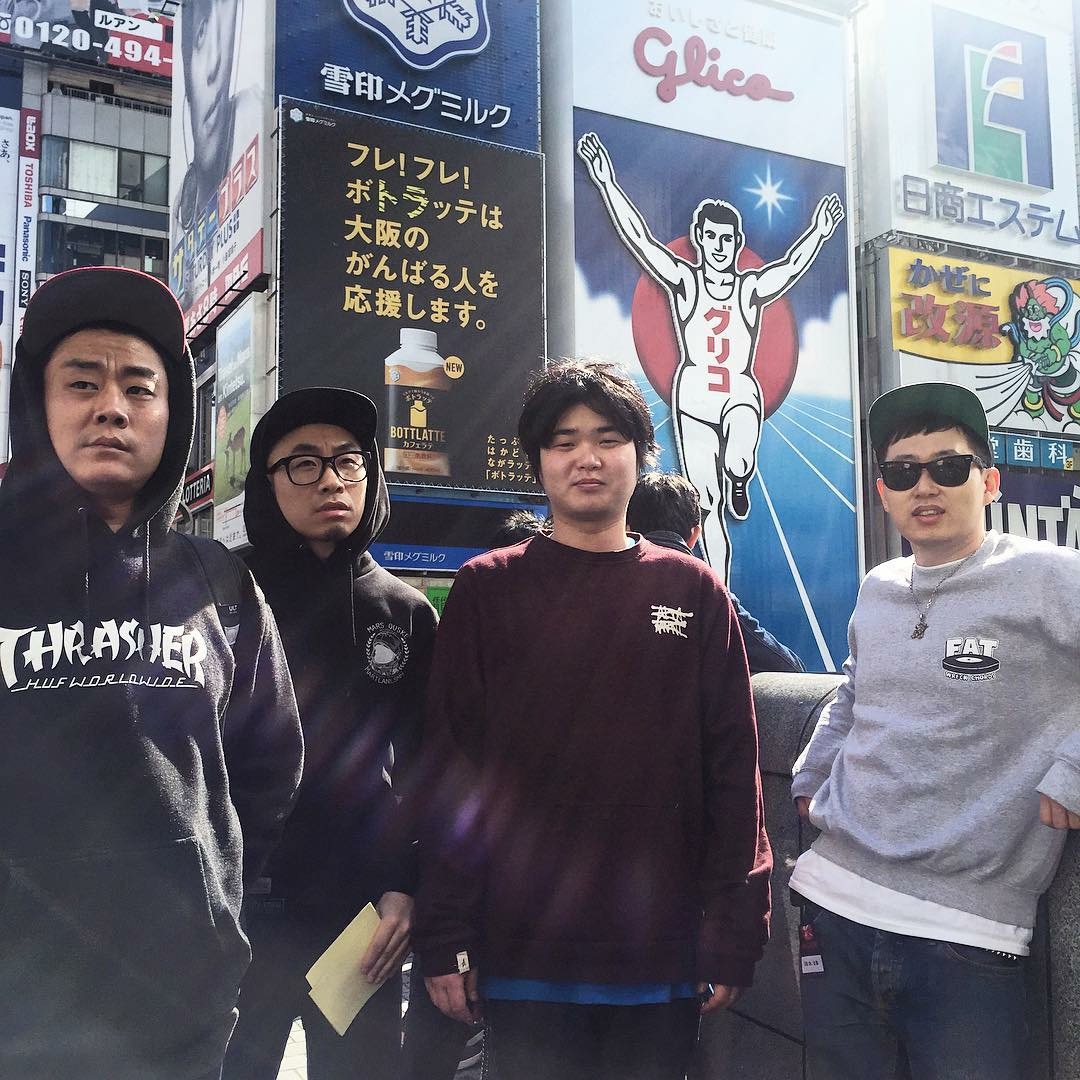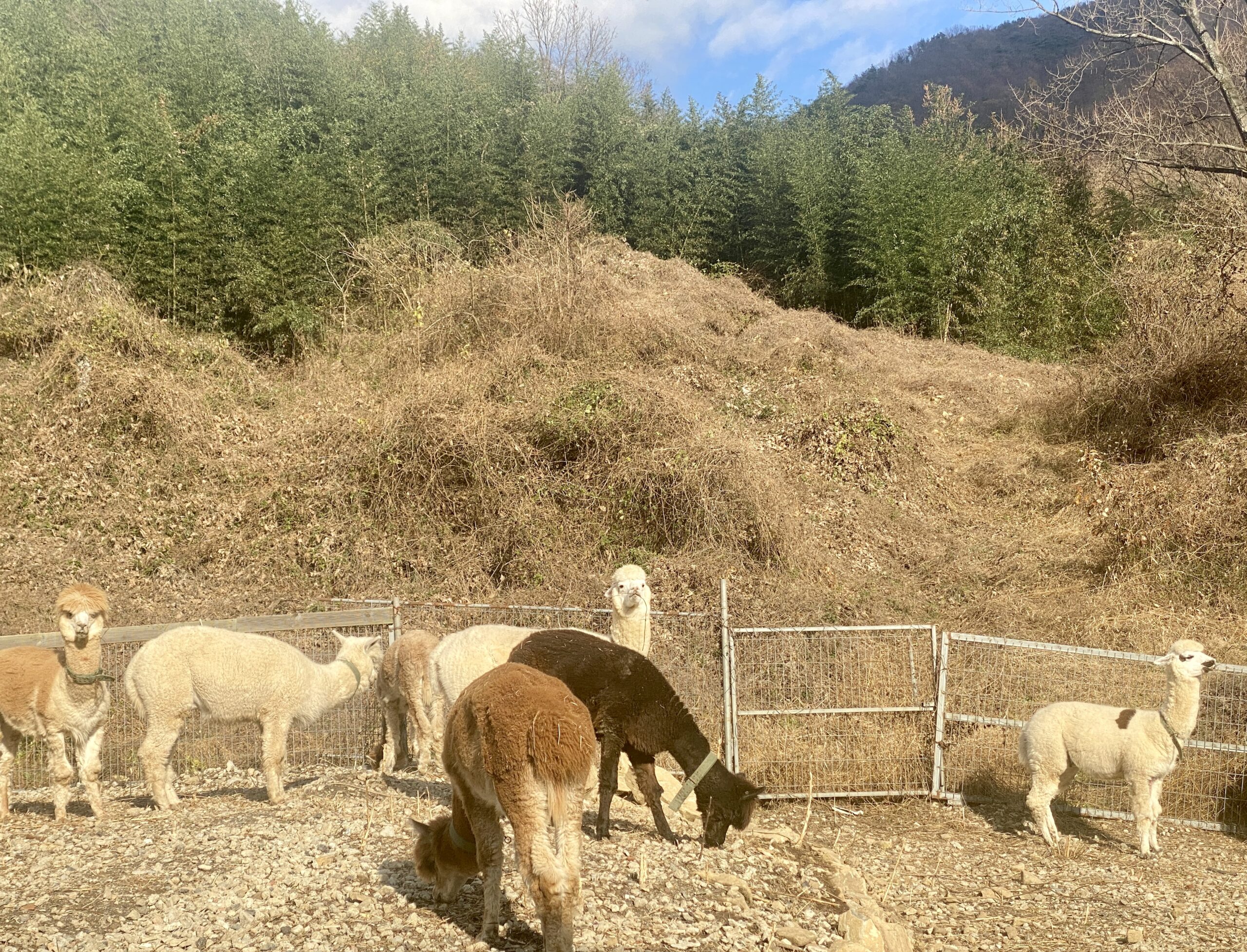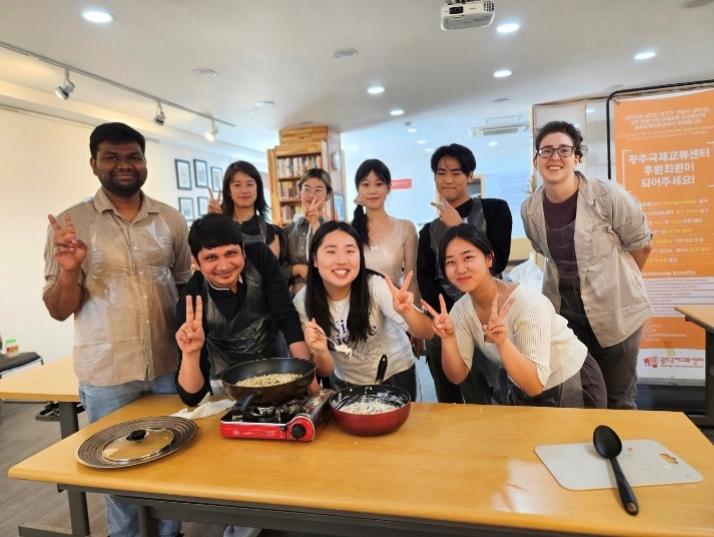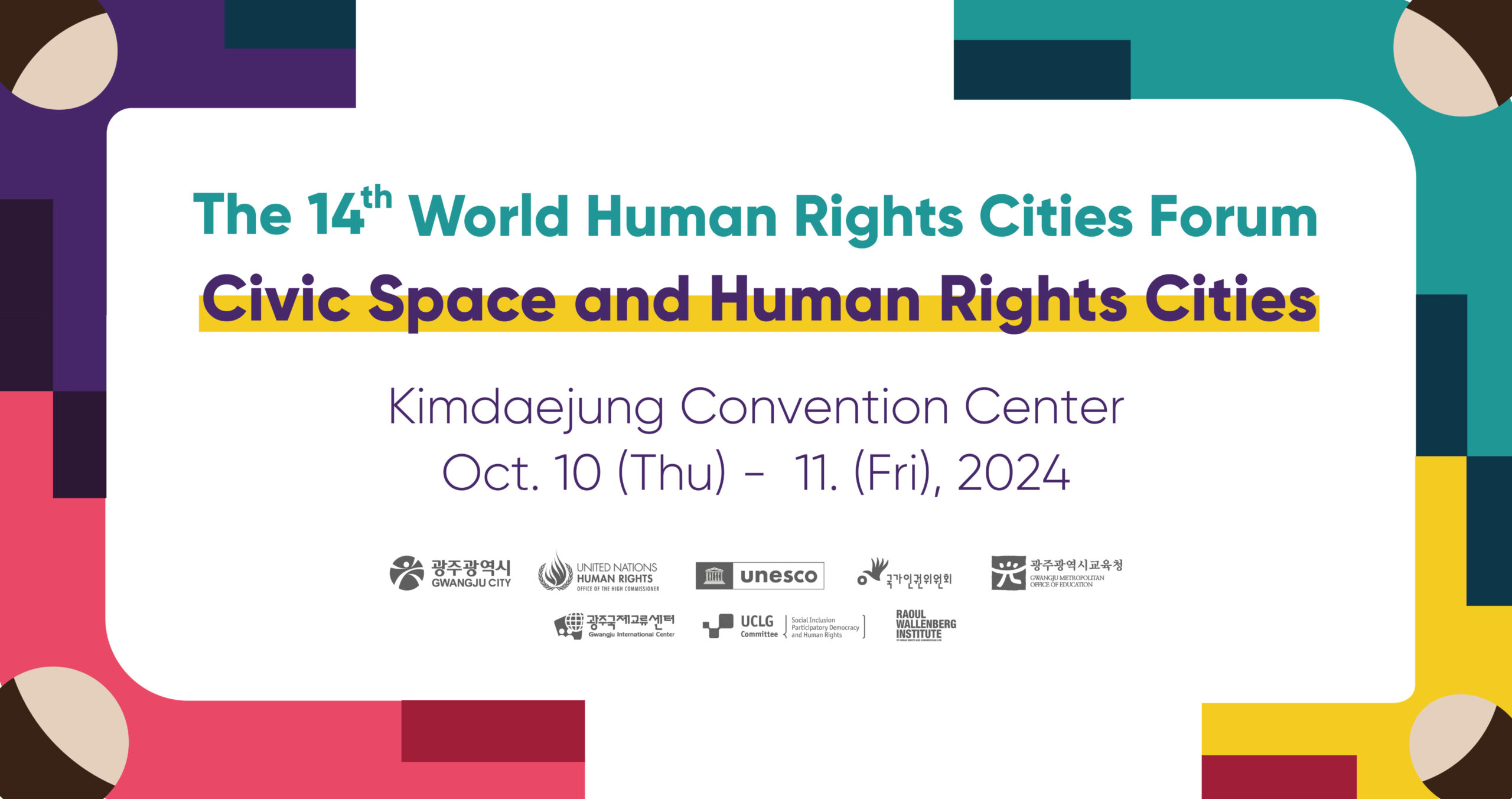Civic Space and Human Rights
The 14th World Human Rights Cities Forum
By Diariatou Gaye

Gwangju is once again set to take center stage in the global discourse on human rights as it hosts the 14th World Human Rights Cities Forum (WHRCF). Over two days, October 10–11, 2024, at the Kim Daejung Convention Center, Gwangju City will welcome participants from around the world to engage in critical discussions centered on this year’s theme: “Civic Space and Human Rights Cities.”
Theme and Significance
The chosen theme for WHRCF 2024, “Civic Space and Human Rights Cities,” is particularly timely and significant. Civic space – the environment in which civil society operates – is fundamental to the realization of human rights. It encompasses freedoms of expression, assembly, and association, enabling individuals and communities to participate in the political, social, and economic life of their cities. In an era marked by rising authoritarianism, digital surveillance, and shrinking public spaces, safeguarding civic space is more crucial than ever.
This theme underscores the vital role cities play in protecting and enhancing civic space. Urban centers are not only the primary arenas where civic engagement occurs but also where innovative policies and practices can be developed to foster inclusive, participatory, and rights-respecting communities. The WHRCF aims to explore how cities can uphold these principles and create environments where human rights can flourish.
Diverse and Dynamic Program
WHRCF 2024 will feature a dynamic program of meetings, workshops, and plenary sessions designed to facilitate in-depth discussions and exchange of best practices. The forum will kick off with an opening ceremony on October 10, followed by a series of high-level plenary sessions that will explore the main theme from multiple perspectives.
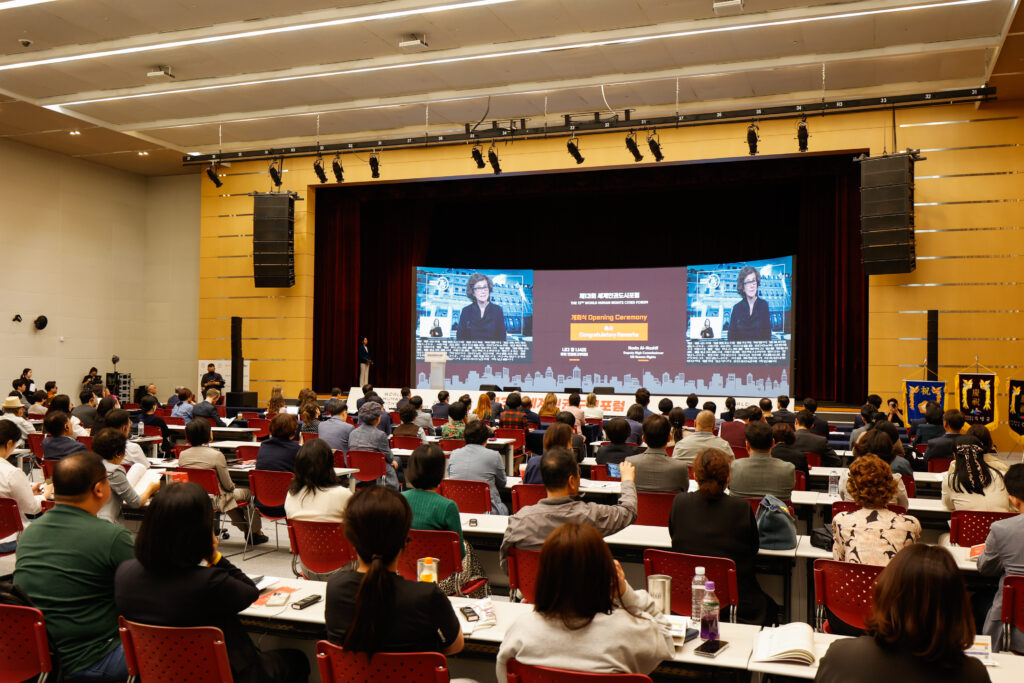
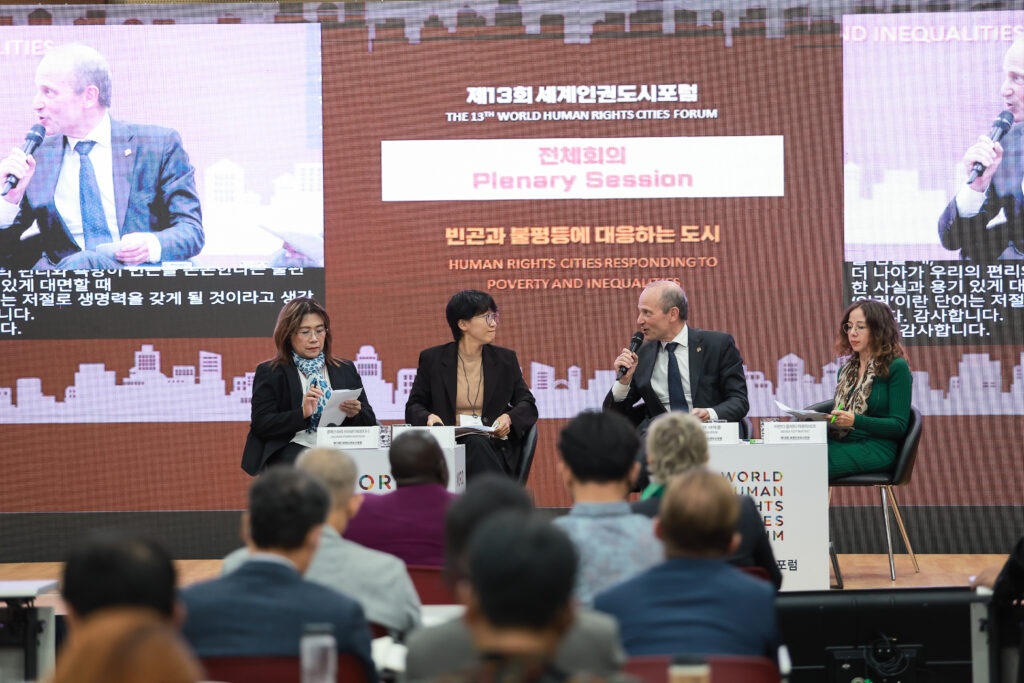
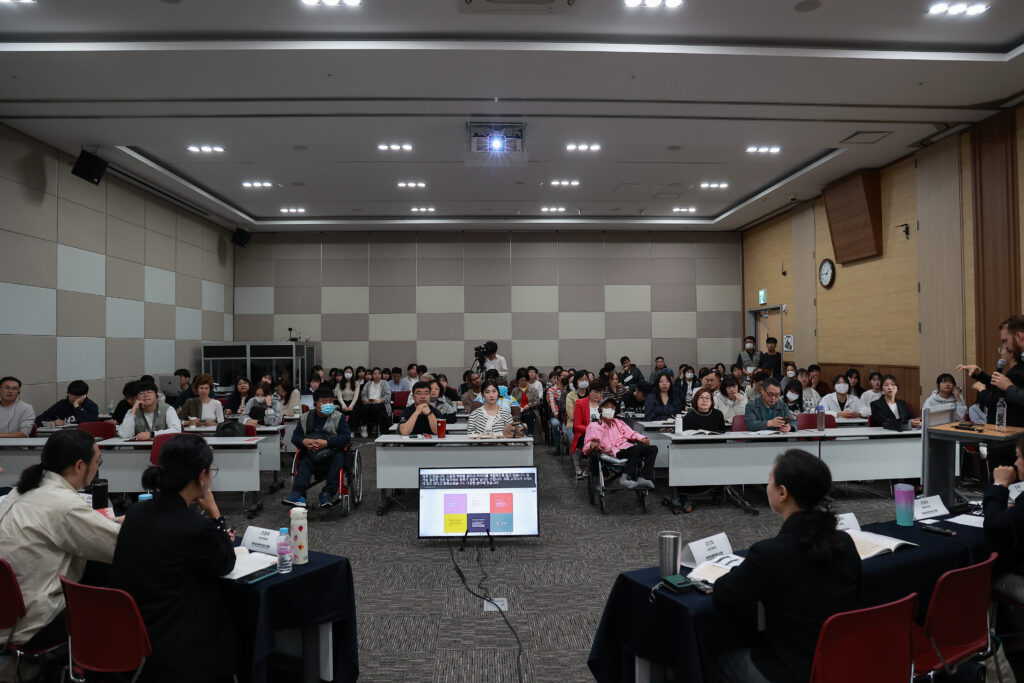
Key Events and Highlights
► Opening Ceremony: The forum will start with an inaugural welcoming of participants and setting the stage for the discussions to follow.
► Plenary Sessions: These sessions will feature renowned human rights experts and city leaders who will share their insights on how to safeguard and enhance civic spaces in urban settings.
► Thematic Sessions: Dedicated sessions will focus on youth participation, gender equality, and the rights of marginalized communities, ensuring that diverse voices are heard and represented.
► Human Rights Tour: The Forum will also include a special Human Rights Tour to allow participants to have a deeper understanding of Gwangju’s historical human rights commitment. The tour will take attendees to significant sites such as the May 18th National Cemetery providing an immersive experience of the city’s legacy in human rights and democracy.
Attendees at the Forum will have the opportunity to participate in interactive sessions that cover a wide range of topics, including the role of technology in civic engagement, strategies for inclusive urban planning, and the protection of vulnerable populations.
Looking Ahead
WHRCF 2024 is set to be a transformative event, providing a vital platform for cities and human rights advocates to exchange ideas, learn from each other, and develop concrete strategies to enhance civic space. As digital technologies and political landscapes evolve, the need for robust civic spaces where human rights can thrive is more critical than ever.
Gwangju, known for its historical commitment to democracy and human rights, is proud to host this significant forum. The city’s ongoing dedication to promoting human rights through the WHRCF reflects its role as a leader in the global human rights movement.
For more information about the forum, including detailed program schedules and registration details, visit the official WHRCF website. Photographs and additional materials are also available on the website, providing a visual glimpse into the forum’s vibrant activities and engaging atmosphere.
Gwangju extends a warm invitation to the global community to join this crucial conversation, to share in the collective learning, and to take concerted action towards fostering more inclusive and rights-respecting cities worldwide.
The Author
Diariatou Gaye is from Dakar, Senegal. She currently lives in Gwangju and is pursuing a master’s degree at Chonnam National University. She loves traveling, meeting new people, and is a big fan of matcha latte. She is always up for discovering new interests and diving into exciting adventures.

